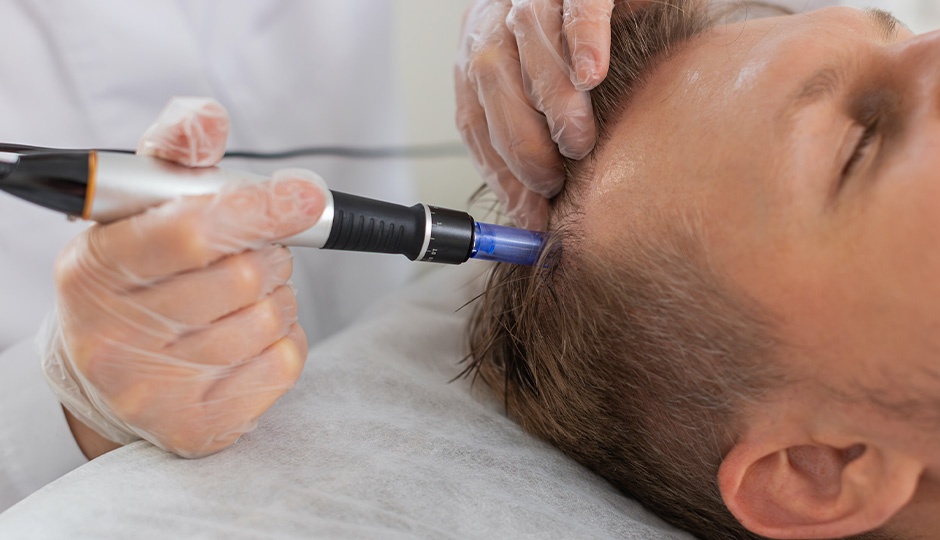Hair loss happens to everyone. Each day, most people lose about 100 strands of hair. That is normal and healthy. It is a part of the natural hair growth cycle. The problem comes when a person starts losing more than that or loses clumps of hair. When this happens in teens, it can be very worrisome, especially if they are unsure what’s happening. There are a few key things to keep in mind.
Why Do Teens Lose Hair?
There are many reasons teens could experience excessive hair loss. It is not normal for it to occur, which generally means there is some underlying condition that is causing the onset of the hair loss. Some of the most common reasons for hair loss in teens include:
Genetics: The most common reason for hair loss at an early age is hair loss. This can include androgenetic alopecia, a condition that can lead to either male or female pattern baldness. It generally causes hair loss along the hairline, in an M, V, or a U shape.
Alopecia Areata: This condition is a type of autoimmune disease. That means that a person’s immune system – which is usually responsible for fighting off infections – is attacking its own cells in an abnormal manner. This condition can cause damage to the hair follicles. The hair loss can happen on the head, but also the eyelashes, eyebrows, or body.
Poor Diet: What a person eats directly contributes to his or her overall nutrient access. That means that a deficiency in important nutrients can lead to inefficiencies in the way the cells work in all areas of the body. For those who are deficient in vitamins such as E, A, C, D, zinc, or niacin, a common symptom is hair loss. For those who are not eating a balance of nutrients or those with eating disorders, this can be common.
Thyroid Disease: There are a lot of hormone-related changes in the body during the teen years. Some of this is due to the thyroid not functioning as it should. As this happens, it often leads to the overproduction or the underproduction of hormones. Those hormones impact all aspects of the body, including the way hair is produced. A thyroid blood test could shed some light on the reason for this type of hair loss.
Polycystic Ovary Syndrome: This condition is one that happens to some young women when the level of androgen, a hormone, is too high. It can lead to hormone imbalances that cause hair loss.
More Common Reasons Teen Hair Loss Occurs
There are other non-medical reasons why a person may suffer from hair loss. For example, a person may be overtreating the hair with heat or chemicals. That can cause damage to the hair itself and lead to hair loss. If you are styling it too tight or you are coloring it too often, this can also lead to the onset of hair loss.
Some medications may also cause hair loss. It is a good idea to speak to your doctor if you started taking medications that now may be causing hair loss.
How Do You Know You Are Experiencing Hair Loss?
It can be hard to tell if you are losing too much hair – most people do not count 100 strands a day to see when there is an imbalance present. You may see changes in your hair. For example, your hair may be thinning in one or more areas. You may also have pattern hair loss, which indicates the hair loss is generally along the hairline and forms a shape like a U or M shape.
In addition to this, some people have complete hair loss – which is most common in conditions of hormonal problems or medications. Other times, the hair loss is patching and hard to pinpoint. This can happen in conditions such as ringworm or lupus.
What should you do? If you have a teenager at home with significant hair loss that seems sudden, it is important to turn to your doctor to get immediate help. He or she can run blood tests and other tests to rule out disease. After consulting with your physician, meeting with a hair loss professional is the next step.
To learn more about the options available for hair loss, contact the team at Unique Hair Concepts for a complimentary hair and scalp analysis.






